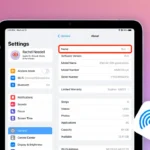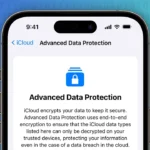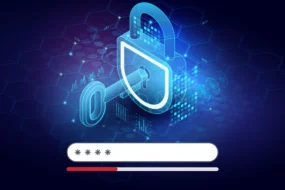The internet is a vital part of our society, and there are many benefits to using it. However, as with any technological advancement, there are drawbacks as well. One such drawback is that reliance on computers and networks for data storage and communication has made us more vulnerable to cybercriminals. With so much information available online, small businesses need to be aware of all the cyber threats they face daily to protect themselves against them. Many small business owners are not aware of cybersecurity risks and how they can affect their online presence. Cybersecurity for small businesses can be an even bigger issue because they don’t have the resources to hire full-time IT professionals.
What Is Cybersecurity for Small Businesses?

Cybercrime is a growing issue that affects the majority of individuals and organizations around the world. All organizations, no matter how large or small, are potential targets of cybercrime. Cybercrime refers to any crime committed over a computer network. Criminal activities include cyberstalking, identity theft, and swatting.
A major cybersecurity risk to small businesses stems from hackers taking control of their online presence, including social media profiles, websites, and email accounts. This can lead to a loss of trust from customers and damage to the company’s reputation if not dealt with quickly.
How Can You Protect Your Small Business From Cyber Attacks?

Small businesses need to be aware that having an active social media account is no longer optional; it’s essential if you want people to know who you are and keep up with what’s going on in the business around you. With so many small businesses using their social media accounts to share information and connect with current and potential customers, it only makes sense that you would want to keep yours safe.
Do not disclose any personal or financial details on your profile (such as passwords, banking numbers, etc.). Ensure the privacy settings of all your profiles are set up correctly; ensure they can’t access by anyone other than yourself.
Be careful about opening emails from unknown sources because this could lead to a malware infection which could cause damage such as data loss. Emails asking for confidential information should always treat carefully.
4 Proven Methods to Protect Small Businesses Against Cybercriminals

This article will cover some different methods you can use to protect your business from cybercriminals.
1. Securing Your Wi-Fi
The easiest way for cybercriminals to gain access to your small business’ information is through an unprotected network. Hackers can steal passwords, credit card numbers, and other sensitive data by intercepting wireless traffic before it’s encrypted with the strongest security protocols available on a Wi-Fi router or modem.
Ensure that you have set up encryption software such as WPA/WPA II if possible – this will prevent anyone from accessing your data while transmitting over open public networks (e.g., at coffee shops, airports).
The location of your routers and modems should not be in places where they’re most likely to get hacked; leave them out in the open only if there isn’t an option but don’t them near windows or doors and always ensure they are securely fastened to the wall.
2. Use a VPN at All Times
A Virtual Private Network (VPN) is essential for small businesses and has been recommended by the National Cyber Security Alliance since 2004. It’s not enough to encrypt your data if you don’t know where that data will end when it leaves your computer.
A VPN allows users to connect through an encrypted tunnel between their device and another networked location such as home or work, safeguarding user information from cyber-thieves in public Wi-Fi hotspots who can hack into any unencrypted session.
More importantly, some larger companies have begun blocking access on devices without this software installed, so you may find yourself unable to do business with clients unless you have this protection in place.
3. Don’t Open Suspicious Email Attachments
It may be tempting to download the software update you have been waiting for, but it might contain malware designed to steal your information or lock down your computer in exchange for a ransom fee. Don’t do it!
Ransomware attacks have been increasing dramatically in recent years – especially through ransomware-as-a-service platforms where novice cybercriminals can purchase prebuilt custom malware off the dark web with few technical skills required. These attackers target small businesses because they often lack cybersecurity protection tools like antivirus software, firewalls, spam filters, etc., which puts them at greater risk.
Don’t open attachments to emails that you’re not expecting. This is the most common way for viruses and other malware to infect your computer. Only click on links within the email if you are 100% sure of their source. If it looks suspicious, don’t do it! Hackers can use links as a backdoor into your business data or personal information.
4. Manage Passwords
The most crucial step to protecting your business is ensuring all employees use good, company-wide solid passwords. Controlling the number of users with weak or easily hacked passwords will help protect against cyber attacks and breaches. You can also use tools like password managers that automatically generate unique passwords for each site to enforce strong security protocols across every workstation on your network.
Passwords are the first line of defense against unauthorized access to information systems. Passwords are no longer an effective tool for protecting network resources. The NTSP provides a step-by-step guide on how to create, maintain, and change your passwords. Below is a list of tips for managing passwords:
- Create strong passwords: Passwords need to be at least six characters long with one upper case letter, one lower case letter, one number, and one symbol or letter used to replace the space. Never share your password – Keep it secret!
- Use different passwords for different websites: Create unique passwords that cannot easily guess or crack by someone who knows what they’re doing. Update your passwords every three months – Not every 60 days, but at least once a quarter.
Conclusion
They are fundamental tips for anyone who uses the internet. However, many small businesses do not prioritize protecting their online presence because they think it is an unnecessary cost or time-consuming effort that only big companies need to worry about. This could not be any more untrue!
Cybersecurity should be everyone’s concern whether you’re running a business from home or in the office; even if you have one employee working part-time on your website and another helping with customer orders full-time over email. Your information is valuable, so don’t take cybersecurity lightly! It can quickly become costly when something goes wrong — especially if no plan was taken before problems arise.
In Case you Missed it:









